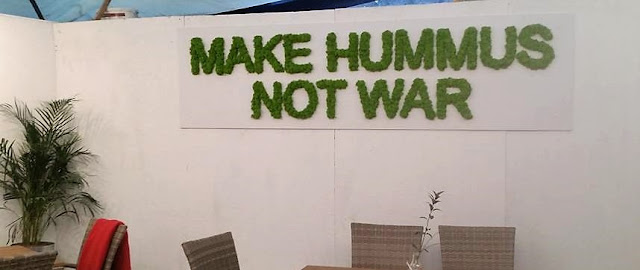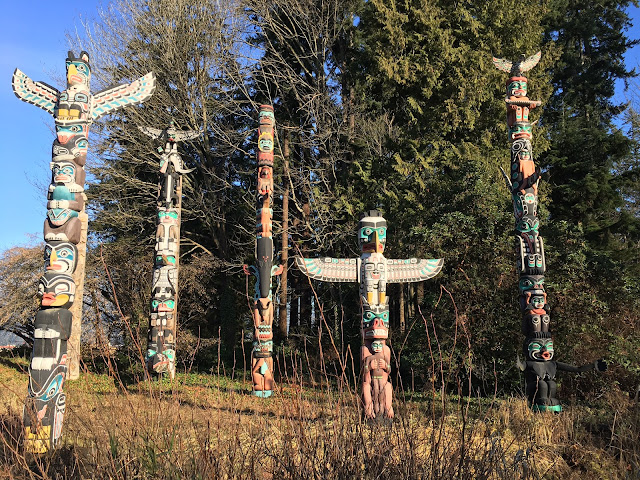An Outsider's Perspective on Thanksgiving

For my last post I wrote a long-and-rambling account of how I spent my first thanksgiving weekend in Canada – ironically, without a single Canadian. I had an excellent weekend, and I definitely enjoyed classes being cancelled on the Monday, but what was the reason behind the celebration? As a Brit, I have only ever understood thanksgiving to be a holiday during which North Americans consume a huge amount of turkey and pumpkin pie, and then spend their yearly earnings in the Black Friday sales. But the holiday has to exist for a reason, and has to be about more than food, right?
Today, thanksgiving is centred on giving thanks for your
family and eating a lot of turkey. However, this was not always the case. American
thanksgiving actually has a troubling history. Historically, thanksgiving was a
celebration of the first harvest in the New World. The Pilgrim settlers had
arrived and established themselves on American soil, and the first harvest
symbolised the success of their new lives there. However, alongside this colonisation
came vast destruction and damage to aboriginal people. There was the European belief
in terra nullius, in which they
believed any land uninhabited by Europeans was “nobody’s land” and thus was available
to be claimed. The indigenous communities that already lived there were
disregarded as insignificant. Therefore, the years that followed contained
extensive destruction and damage to Native American communities, in which the Native
Americans underwent mass murder, land seizures, disease and forced
assimilation. This raises the problem of American thanksgiving: how can we
celebrate colonisation, and the first harvest, when this event also marked the
beginning of destruction and pain for Native Americans? (The Guardian Liberty
Voice gives a good summary of the problems and complications surrounding
American Thanksgiving, link below).
To some degree this is “old news” – many people are aware
of, and discuss, the problems surrounding American thanksgiving. But does Canadian
thanksgiving fall under the same criticism? Based on a quick look through
Google, it appears this is not the case. There is significantly less discussion
of Canadian thanksgiving being disrespectful, or inappropriate, than there is
of American thanksgiving. But why is this?
 |
| The British Columbia Parliament Building in Victoria, designed by an English immigrant, for Euro-Canadians, alongside a traditional native totem pole: this photo reflects Canada's conflict between colonisation and aboriginal tradition. |
Perhaps it goes back to the usual question of ignorance.
Studying a degree in American and Canadian Studies, and especially studying at
Simon Fraser University, has given me extensive knowledge of the cultural
genocide that aboriginal people underwent in Canada. According to my tutors,
however, not many Canadians know about this troubling history. Other students in
my classes have mentioned that they were never taught about the residential school
system when in high school. In fact, some have said they did not learn about it
until they reached university. This lack of knowledge is surprising, particularly
when some of the history is so recent – the last residential school did not
close until 1996. I have been told that nationally, many Canadians are unaware
of the cultural genocide in their past. Perhaps the lack of discussion around thanksgiving
is for the same reason – people have not realised it is a holiday that may have
troubling connections. There needs to be greater discourse and awareness of
this.
I am not suggesting Canadians should give up the holiday.
Far from it. I believe that expressing thanks for your family and friends is a wonderful
thing – indeed, it should be done every day. However, we no longer need to
celebrate the first harvest the way the Puritans in the New World did. The colonial
message behind the holiday should change. Coincidentally, Indigenous Peoples’
Day (a celebration in the US) falls on the same day as Canadian thanksgiving.
This holiday exists as a direct counter-celebration to Columbus Day; rather
than celebrating colonisation, the holiday focuses on showing respect and
support to the indigenous people of America. Canadian thanksgiving can learn
from this. Society is evolving, and so the meaning behind traditions should
evolve too. As well as being grateful for family and health, thanksgiving could
be an opportunity to celebrate, and show respect to, the aboriginal people of
Canada, just as Indigenous People’s Day in the US does. The Truth and Reconciliation
Commission of Canada aims to reconcile Canadian relations with aboriginal
people. Changing the meaning behind thanksgiving could be our small, but
positive step, towards reconciliation.
If you want to find out more about the controversy behind American
Thanksgiving: http://guardianlv.com/2014/11/thanksgiving-has-a-controversial-history/
If you want to find out more about the cultural genocide
that aboriginal people faced in Canada: http://nctr.ca/reports.php
Some ideas on how to take positive steps towards reconciliation:
http://www.trc.ca/websites/reconciliation/index.php?p=335


Comments
Post a Comment